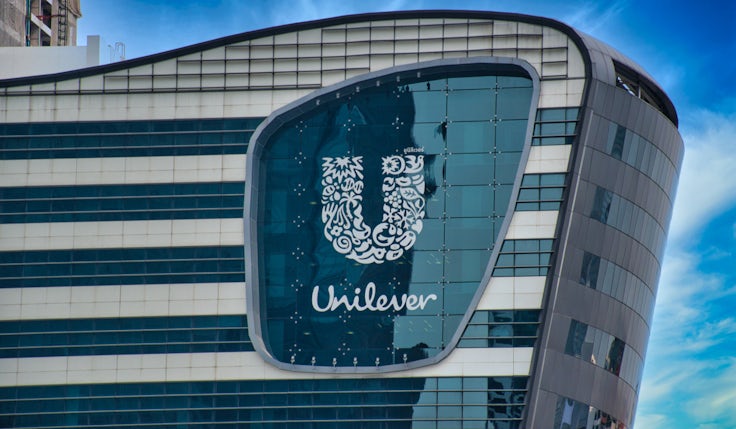Unilever finance chief tells investors to take ‘holistic’ view of return on marketing spend
Return on marketing investment cannot solely be judged by whether volume sales grow, Unilever CFO Graeme Pitkethly has told an audience of investors and financial analysts.
 Unilever’s chief financial officer Graeme Pitkethly has defended the “holistic” impact of marketing spend across the business to investors and financial analysts.
Unilever’s chief financial officer Graeme Pitkethly has defended the “holistic” impact of marketing spend across the business to investors and financial analysts.
The FMCG business, which owns brands such as Dove, Marmite and Magnum, raised marketing spend by €500m (£429m) in 2022. In the first half of its 2023 financial year, it increased investment by €400m (£343m) versus the same period last year. The company has committed to increasing its marketing spend this year.
During a fireside chat yesterday (7 September) at the Barclays Global Consumer Staples Conference 2023, in front of an audience of investors and analysts, Pitkethly was quizzed about the reasons for stepping up this investment by Barclays managing director Warren Ackerman.
“Why do you think that is necessary? If you increase the marketing investment by half a billion or a billion, what kind of benefit might we see to volume mix?” Ackerman asked.
In response, Pitkethly described “quite a different landscape” across Unilever’s portfolio in terms of measuring the return on marketing spend. In the company’s health, wellbeing and beauty prestige brands, a large proportion of sales come through direct-to-consumer channels, he noted. Therefore much of Unilever’s marketing for these brands is behind sales-driving, lower-funnel marketing.
I understand the question, you’ve put this money in, what should you see on the volume response? But really, it works in a much more holistic way than that.
Graeme Pitkethly, Unilever
“That is an area where you can get a really, really clear sense of the performance of your marketing investment because you’re measuring direct conversion,” he said.
By comparison, upper funnel activity can be “difficult” to track through a direct increase in volume sales.
“I understand the question, you’ve put this money in, what should you see on the volume response? But really, it works in a much more holistic way than that,” he added.
Rather than judging the effectiveness of brand and advertising investment by looking for an immediate growth in sales, Unilever will look across a range of metrics, including the reach and frequency of its communications. It is also assessing the quality of that communication.
When it comes to determining where to spend marketing investment, Pitkethly said that a particular priority of his has been investing in media spend to bolster existing advertising platforms, rather than creating new ones.
“Are we making sure the investment goes into media, so we’re making good assets but spending more money showing those assets to consumers through the right communication channels? As opposed to jumping off to make another piece of communication too quickly,” he said.
In February, Unilever told its investors that more than 80% of its marketing spend in 2022 went directly into media.
Pitkethly was speaking at a time of change for the consumer goods giant. Unilever is less than two months into the leadership of a new CEO, Hein Schumacher, who took over from Alan Jope in July. Meanwhile, its top marketer Conny Braams stepped down in August. Pitkethly himself will retire from the business in May 2024. In December, chair of the board Nils Anderson will step down.
While acknowledging that these changes had come in “short order”, he emphasised the transition is “well thought through and well managed”. He said the changes Unilever has made to its structure have set it up well for the future.






Comments